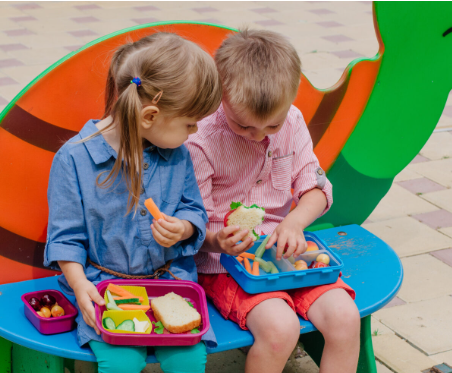Children are naturally full of energy and curiosity, and guiding them to use this energy in positive ways can shape a healthy and happy future. Learning healthy habits from an early age not only strengthens their bodies but also nurtures emotional well-being, social skills, and lifelong resilience. Creating an environment that encourages good habits while maintaining joy and playfulness is essential for cultivating what can be called “happy energy.”
One of the most important habits children can develop early is maintaining an active lifestyle. Physical activity is crucial for healthy growth, supporting strong muscles and bones, improving coordination, and boosting cardiovascular health. Encouraging children to engage in outdoor play, sports, or simple exercises can make movement enjoyable rather than a chore. Activities like running, jumping, climbing, or dancing allow children to explore their environment while releasing energy in a positive way. Active play also enhances creativity and problem-solving, as children learn to navigate obstacles, create games, and interact with peers.
Alongside physical activity, nutrition plays a significant role in sustaining a child’s happy energy. Children who learn to eat a variety of wholesome foods from a young age are more likely to develop balanced eating habits that last a lifetime. Meals rich in fruits, vegetables, whole grains, and lean proteins provide the energy needed for growth, concentration, and emotional stability. Teaching children to enjoy healthy foods, involving them in meal preparation, and encouraging them to listen to their body’s hunger signals can help them develop a positive relationship with food. Limiting sugary snacks and processed foods without making mealtime a battle allows children to understand moderation naturally.
Sleep is another cornerstone of a child’s well-being. Children need consistent, adequate sleep to support physical growth, brain development, and emotional regulation. Establishing a calm bedtime routine, such as reading together or listening to soothing music, signals to the child’s body that it is time to rest. A regular sleep schedule helps children wake up refreshed and ready to embrace their day with enthusiasm. Ensuring that children have a comfortable sleep environment, free from distractions like screens, reinforces the importance of rest and demonstrates how sleep contributes to maintaining happy energy throughout the day.
Equally important is teaching children emotional awareness and coping skills. Recognizing and expressing feelings in healthy ways allows children to develop empathy, manage stress, and communicate effectively. Simple practices like talking about emotions, naming feelings, or engaging in mindfulness activities help children understand their inner world. Encouraging them to use words to express frustration, excitement, or sadness builds emotional intelligence and strengthens their ability to form positive relationships. Adults can model these behaviors by staying calm during challenges and showing constructive ways to deal with emotions.
Social interactions also influence a child’s healthy habits and energy. Learning to share, take turns, cooperate, and resolve conflicts with peers fosters a sense of belonging and self-confidence. Group activities, cooperative games, and family interactions provide children with opportunities to practice these skills while enjoying the companionship of others. Positive reinforcement, such as praise for kindness or teamwork, reinforces the value of respectful communication and collaboration. Children who develop strong social skills early are more likely to approach life with curiosity, resilience, and a positive attitude.
Another valuable habit is the encouragement of curiosity and learning through exploration. Children who are exposed to new experiences, environments, and ideas develop cognitive flexibility and a love for discovery. Simple activities like nature walks, storytelling, building projects, or creative arts inspire imagination and problem-solving skills. By nurturing curiosity, parents and caregivers create opportunities for children to engage actively with their surroundings, building confidence and a sense of achievement. Lifelong learners often start with these small moments of guided exploration and the freedom to experiment safely.
In addition, creating routines that balance activity, rest, learning, and play helps children understand the importance of structure. Predictable routines give children a sense of security, reduce stress, and promote self-discipline. Morning rituals, meal times, homework sessions, and bedtime routines create a rhythm that children can rely on, helping them manage their energy effectively. When routines are approached with flexibility and joy rather than rigidity, children learn to appreciate the balance between responsibility and fun.
Encouraging creativity is also key to happy energy. Creative activities such as drawing, music, dance, or imaginative play allow children to express themselves freely and develop problem-solving abilities. Creativity strengthens self-expression, reduces stress, and fosters a sense of accomplishment. By providing children with materials, space, and time to explore their creative ideas, adults show that individual expression is valued, which in turn supports emotional health and positive energy.
It is also vital to model healthy habits as adults. Children learn largely through observation, so seeing parents, teachers, and caregivers engage in physical activity, balanced eating, mindful practices, and positive social interactions reinforces these behaviors. Sharing experiences, celebrating small achievements, and practicing healthy habits together can make the process enjoyable and meaningful. When adults demonstrate enthusiasm and consistency, children are more likely to adopt these practices naturally.
Finally, fostering a supportive environment where children feel loved, secure, and encouraged enhances their overall happiness and energy. Positive reinforcement, active listening, and celebrating milestones provide children with the confidence to explore the world and embrace new challenges. When children feel supported, they develop resilience, curiosity, and motivation, which translates into sustained happy energy that drives learning, creativity, and social engagement.
In conclusion, happy energy in children emerges from a combination of healthy habits, emotional awareness, social interactions, and supportive environments. By nurturing physical activity, balanced nutrition, sufficient sleep, emotional intelligence, social skills, creativity, curiosity, and positive routines, parents and caregivers lay the foundation for a vibrant and fulfilling childhood. Teaching these habits early allows children to carry energy, enthusiasm, and a love for life into their future, ensuring they grow not only strong and healthy but also joyful and confident. By approaching these practices with patience, playfulness, and encouragement, adults can help children transform their natural energy into a lifelong resource for happiness and well-being.














